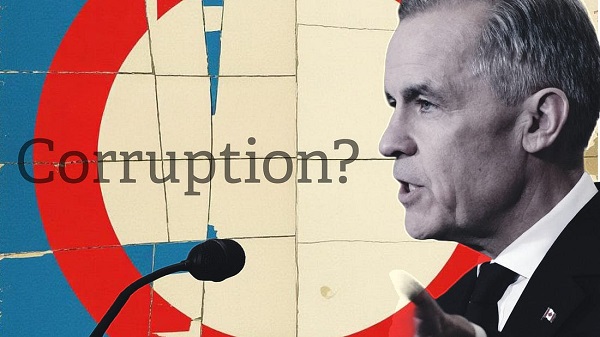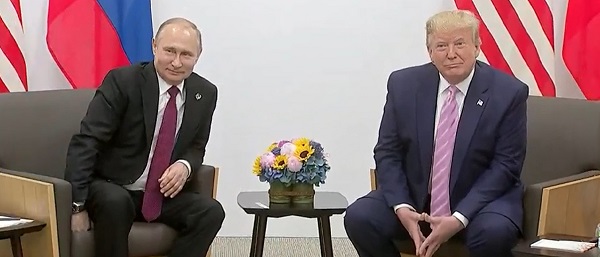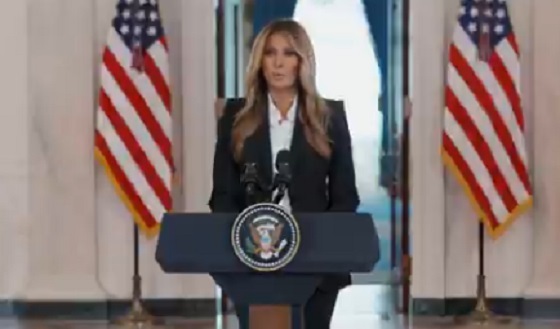Uncategorized
Assange refuses extradition to US; long legal fight expected

LONDON — WikiLeaks founder Julian Assange told a London court on Thursday that he wouldn’t agree to be extradited to the United States, where he is accused of conspiring to hack into a Pentagon computer.
Assange, appearing by video link from a London prison, said he wouldn’t “surrender myself for extradition for doing journalism that has won many awards and protected many people.”
Wearing jeans and a sports jacket, Assange appeared calm during the brief hearing at London’s Westminster Magistrates’ Court.
Judge Michael Snow said it would likely be “many months” before a full hearing was held on the substance of the U.S. extradition case. The judge set a procedural hearing for May 30, with a substantive hearing to follow on June 12.
The 47-year-old Australian was sentenced Wednesday to 50 weeks in prison in the U.K. for jumping bail in 2012 and holing up in the Ecuadorian Embassy in London. At the time, he was facing extradition to Sweden for questioning over rape and sexual assault allegations made by two women.
Assange says he sought asylum because he feared being sent to the U.S. to face charges related to WikiLeaks’ publication of classified U.S. military documents.
U.S. authorities accuse Assange of scheming with former Army intelligence analyst Chelsea Manning to break a password for a classified government computer.
Manning served several years in prison for leaking classified documents to WikiLeaks. She was jailed again in March after refusing to testify to a grand jury investigating the secret-spilling organization.
Ben Brandon, a lawyer representing the U.S. government, said in court Thursday that U.S. investigators had obtained details of chatroom communications between Manning and Assange in 2010. Brandon said the pair had “engaged in real-time discussions regarding Chelsea Manning’s dissemination of confidential records to Mr. Assange.”
He said the documents allegedly downloaded from a classified U.S. computer included 90,000 activity reports from the war in Afghanistan, 400,000 Iraq war-related reports, 800 Guantanamo Bay detainee assessments and 250,000 State Department cables.
The U.S. charge against Assange carries a maximum five-year prison sentence, but he is worried the U.S. could add further, more serious allegations against him.
“The fight has just begun. I will be a long one and a hard one,” said WikiLeaks editor-in-chief Kristinn Hrafnsson, who claimed Assange was being held in “appalling” conditions at Belmarsh Prison. He said Assange was confined to his cell 23 hours a day, “what we call in general terms solitary confinement.”
A few dozen WikiLeaks supporters holding signs reading “Free Assange” and “No extradition” gathered outside the London courthouse before Thursday’s hearing.
Some who had waited for two hours hoping to get in were bitterly disappointed when those seats were filled by journalists and lawyers. They shouted angrily at court staff and complained they were being discriminated against for backing Assange. Some later blocked a busy main road outside the court, bringing traffic to a halt.
Assange was arrested last month in London after his relationship with his embassy hosts went sour and Ecuador revoked his political asylum.
Jill Lawless And Gregory Katz, The Associated Press
Uncategorized
CNN’s Shock Climate Polling Data Reinforces Trump’s Energy Agenda


From the Daily Caller News Foundation
As the Trump administration and Republican-controlled Congress move aggressively to roll back the climate alarm-driven energy policies of the Biden presidency, proponents of climate change theory have ramped up their scare tactics in hopes of shifting public opinion in their favor.
But CNN’s energetic polling analyst, the irrepressible Harry Enten, says those tactics aren’t working. Indeed, Enten points out the climate alarm messaging which has permeated every nook and cranny of American society for at least 25 years now has failed to move the public opinion needle even a smidgen since 2000.
Appearing on the cable channel’s “CNN News Central” program with host John Berman Thursday, Enten cited polling data showing that just 40% of U.S. citizens are “afraid” of climate change. That is the same percentage who gave a similar answer in 2000.
Dear Readers:
As a nonprofit, we are dependent on the generosity of our readers.
Please consider making a small donation of any amount here.
Thank you!
Enten’s own report is an example of this fealty. Saying the findings “kind of boggles the mind,” Enten emphasized the fact that, despite all the media hysteria that takes place in the wake of any weather disaster or wildfire, an even lower percentage of Americans are concerned such events might impact them personally.
“In 2006, it was 38%,” Enten says of the percentage who are even “sometimes worried” about being hit by a natural disaster, and adds, “Look at where we are now in 2025. It’s 32%, 38% to 32%. The number’s actually gone down.”
In terms of all adults who worry that a major disaster might hit their own hometown, Enten notes that just 17% admit to such a concern. Even among Democrats, whose party has been the major proponent of climate alarm theory in the U.S., the percentage is a paltry 27%.
While Enten and Berman both appear to be shocked by these findings, they really aren’t surprising. Enten himself notes that climate concerns have never been a driving issue in electoral politics in his conclusion, when Berman points out, “People might think it’s an issue, but clearly not a driving issue when people go to the polls.”
“That’s exactly right,” Enten says, adding, “They may worry about in the abstract, but when it comes to their own lives, they don’t worry.”
This reality of public opinion is a major reason why President Donald Trump and his key cabinet officials have felt free to mount their aggressive push to end any remaining notion that a government-subsidized ‘energy transition’ from oil, gas, and coal to renewables and electric vehicles is happening in the U.S. It is also a big reason why congressional Republicans included language in the One Big Beautiful Bill Act to phase out subsidies for those alternative energy technologies.
It is key to understand that the administration’s reprioritization of energy and climate policies goes well beyond just rolling back the Biden policies. EPA Administrator Lee Zeldin is working on plans to revoke the 2010 endangerment finding related to greenhouse gases which served as the foundation for most of the Obama climate agenda as well.
If that plan can survive the inevitable court challenges, then Trump’s ambitions will only accelerate. Last year’s elimination of the Chevron Deference by the Supreme Court increases the chances of that happening. Ultimately, by the end of 2028, it will be almost as if the Obama and Biden presidencies never happened.
The reality here is that, with such a low percentage of voters expressing concerns about any of this, Trump and congressional Republicans will pay little or no political price for moving in this direction. Thus, unless the polls change radically, the policy direction will remain the same.
David Blackmon is an energy writer and consultant based in Texas. He spent 40 years in the oil and gas business, where he specialized in public policy and communications.
Uncategorized
Kananaskis G7 meeting the right setting for U.S. and Canada to reassert energy ties


Energy security, resilience and affordability have long been protected by a continentally integrated energy sector.
The G7 summit in Kananaskis, Alberta, offers a key platform to reassert how North American energy cooperation has made the U.S. and Canada stronger, according to a joint statement from The Heritage Foundation, the foremost American conservative think tank, and MEI, a pan-Canadian research and educational policy organization.
“Energy cooperation between Canada, Mexico and the United States is vital for the Western World’s energy security,” says Diana Furchtgott-Roth, director of the Center for Energy, Climate and Environment and the Herbert and Joyce Morgan Fellow at the Heritage Foundation, and one of America’s most prominent energy experts. “Both President Trump and Prime Minister Carney share energy as a key priority for their respective administrations.
She added, “The G7 should embrace energy abundance by cooperating and committing to a rapid expansion of energy infrastructure. Members should commit to streamlined permitting, including a one-stop shop permitting and environmental review process, to unleash the capital investment necessary to make energy abundance a reality.”
North America’s energy industry is continentally integrated, benefitting from a blend of U.S. light crude oil and Mexican and Canadian heavy crude oil that keeps the continent’s refineries running smoothly.
Each day, Canada exports 2.8 million barrels of oil to the United States.
These get refined into gasoline, diesel and other higher value-added products that furnish the U.S. market with reliable and affordable energy, as well as exported to other countries, including some 780,000 barrels per day of finished products that get exported to Canada and 1.08 million barrels per day to Mexico.
A similar situation occurs with natural gas, where Canada ships 8.7 billion cubic feet of natural gas per day to the United States through a continental network of pipelines.
This gets consumed by U.S. households, as well as transformed into liquefied natural gas products, of which the United States exports 11.5 billion cubic feet per day, mostly from ports in Louisiana, Texas and Maryland.
“The abundance and complementarity of Canada and the United States’ energy resources have made both nations more prosperous and more secure in their supply,” says Daniel Dufort, president and CEO of the MEI. “Both countries stand to reduce dependence on Chinese and Russian energy by expanding their pipeline networks – the United States to the East and Canada to the West – to supply their European and Asian allies in an increasingly turbulent world.”
Under this scenario, Europe would buy more high-value light oil from the U.S., whose domestic needs would be back-stopped by lower-priced heavy oil imports from Canada, whereas Asia would consume more LNG from Canada, diminishing China and Russia’s economic and strategic leverage over it.
* * *
The MEI is an independent public policy think tank with offices in Montreal, Ottawa, and Calgary. Through its publications, media appearances, and advisory services to policymakers, the MEI stimulates public policy debate and reforms based on sound economics and entrepreneurship.
As the nation’s largest, most broadly supported conservative research and educational institution, The Heritage Foundation has been leading the American conservative movement since our founding in 1973. The Heritage Foundation reaches more than 10 million members, advocates, and concerned Americans every day with information on critical issues facing America.
-

 Alberta2 days ago
Alberta2 days agoPremier Smith addresses the most important issue facing Alberta teachers: Classroom Complexity
-

 Alberta2 days ago
Alberta2 days agoAlberta taxpayers should know how much their municipal governments spend
-

 Business18 hours ago
Business18 hours agoEthics on Ice: See You Next Year
-

 espionage2 days ago
espionage2 days agoBreaking: P.E.I. Urges RCMP Probe of Alleged Foreign Interference, Money Laundering
-

 Business1 day ago
Business1 day agoCutting Red Tape Could Help Solve Canada’s Doctor Crisis
-

 Daily Caller1 day ago
Daily Caller1 day agoTrump, Putin Agree On High-Stakes Meetings To Negotiate End To Ukraine War
-

 Business19 hours ago
Business19 hours agoFederal Budget 2025: A responsible media would ensure Canadians know about the dismal state of federal finance
-

 Business19 hours ago
Business19 hours agoCanada has an energy edge, why won’t Ottawa use it?






